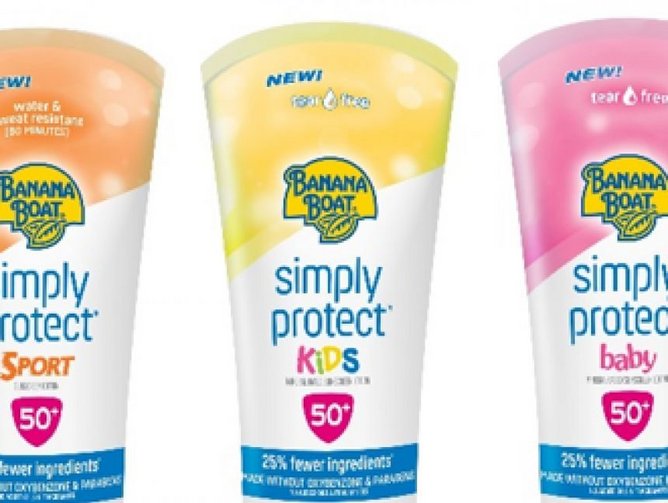Edgewell Personal Care: promoting agility through digital disruption
The procurement function has evolved from purely transactional – such as managing purchase orders, payments and invoices – to a strategic role across organizations. Shifting its value proposition to become an integral part of a business, procurement is expected to deliver a significant impact on bottom line margins using innovative sourcing strategies and cost saving levers. The value proposition is evolving even further, where procurement has sought to impact the top line of an organization by delivering supplier-enabled innovations, forming an integral part of corporate social responsibility (CSR) and sustainability objectives, mitigating all kinds of external risk to supply continuity, finances or even brand equity.
A clear example of that is how businesses, presently faced with political uncertainty, government regulations and ongoing trade wars on a global scale, are looking at the procurement function. Such volatility has put unprecedented financial and supply chain risks on businesses, which is where procurement needs to be in driver’s seat.
On top of this, the ongoing digital disruptions impacting every industry, has resulted in increased pressure on businesses to transform their models. The procurement function must play a critical role in digital transformations of businesses, while also transforming itself.
“I believe these are significant challenges, but it makes our role in procurement very exciting and valuable at the same time,” reflects Nirav Mehta, Vice President of Global Procurement at Edgewell Personal Care (EPC). Joining the business four years ago and appointed as Vice President in 2018, Mehta’s diverse background in the consumer goods industry made him the perfect choice to take the business on its next stage of growth. Working for Coty, Avon and L’Oréal amongst others, he reflects that he joined “this gem of a company” due to its “phenomenal culture” and its “collaborative and down-to-earth people.” With several strong fundamentals in place for the business to succeed long-term, including strong personal care brands under its umbrella, Mehta is enthusiastic about the role procurement and supply chain is playing in its transformation.
“We like to call ourselves a small big company. It also describes our culture and our entrepreneurial mindset to a great extent. Like a startup, perhaps, but with the resources of a large organization,” he says wistfully. “We are not so big that the bureaucracy and politics of decision making, or lack of empowerment can stifle our growth and innovation. I believe this is a great asset that we have, and we try to leverage it. Our company's motto, in simple words, is ‘challenge to win’. We consider ourselves challengers to our competitors in the industry.”
Technology continues to accelerate the transformation of every industry, and the consumer-packaged goods (CPG) and personal care sector is no exception. Whether it is e-commerce or direct-to-consumer type business models. EPC was previously geared towards competing with larger CPG companies and serving large, brick-and-mortar type retailers. As digitization continues to shift the goalposts, a significant number of niche brands are not only challenging market share and the price positioning of bigger players, but also the traditional business models which have remained relatively unchanged – until now.
“I would say even consumer behaviors are changing,” observes Mehta. “In the past, consumers used to be a lot more loyal to big brand names, but nowadays are looking for more personalization and are more willing and open to try new brands and new products that appeal to their individuality, that the values of these brands align with the values of themselves.”
“You see this huge influx of really small, niche piranha brands in every consumer goods sector. That niche value proposition is targeted to a very specific segment of consumers, appeals to them and is successful in grabbing pieces of market share. At the end of the day, when you add all that up, it becomes a challenging marketplace for incumbent players.”
With shifts in consumer behavior, an evolving landscape from brick-and-mortar to e-commerce, as well as business models changing to direct-to-consumer and subscription-type models, these tensions, on top of such geopolitical uncertainties, has created a hotbed of challenges for companies like EPC. EPC is undergoing a journey to transform each area of the business. From taking a closer look at changing consumer behaviors and delivering agile innovation through simplified ways of working, the business is also deploying new digital tools to become increasingly proactive amidst changing market trends.
The procurement team at EPC is at the front and center of navigating through these complex challenges. Recently, the business effectively managed an ongoing threat posed by the steel import tariffs by the US government. Due to its proactive approach, the business was one of the first to be granted exemptions by the US Department of Commerce.
“When the US government announced the 25% tariff on imported steel, it was one of the key challenges we were facing in our shaving business because our razors are manufactured with imported blade steel. It was a challenging situation because something like that can immediately have a big impact on the margins of that line of business. We took a very systematic, and what I would consider a very organized approach towards managing that risk in a four-step approach,” he explains.
“The first step was to really understand the policy, go down to the details and really understand what the tariff is being applied on. What categories of steel is the tariff being applied for? What countries are exempt? What countries are not exempt? What are the criteria for exemption? These tie back to our category expertise as well, where we had a very in-depth understanding of the macroeconomics, the cost drivers and the marketplace for blade steel. This really helped us to incorporate a sourcing strategy that would allow us to manage some of these risks.
“The second step was assessing the risk exposure, understanding the full value stream within our supply chain where there could be an impact. After that, step three was taking some immediate actions. We were very proactive in terms of filing a petition, we were in very close contact with our suppliers and made sure that we aggressively appealed and made our case with the US Department of Commerce. We also sought advice from experts within the trade field,” he continues.
“As a result of all these efforts, we were one of the first to be granted an exemption for the blade steel category. As a final step, we are considering our long-term strategic decisions and how we can build more flexibility and agility within our supply chain and mitigate such impacts in the future. Whether it is alternative sourcing and manufacturing strategies, or changing up product strategies or our specifications. However, we are not done here, as there are still ongoing efforts to ensure we strategically manage impact of tariffs on various other categories, including imports from China.”
EPC Procurement Managers are tasked with not only understanding EPC’s business needs, but also develop their expertise on macroeconomics, cost drivers, competitive benchmarking, external innovations and more. The procurement team is then able to utilize this insight and intelligence to implement multi-year sourcing strategies. These multi-year strategies will then define how to deliver further value within the different lines of businesses at EPC. The team is also driving value through commodity risk management across all lines of business. By implementing strategies for most of its commodities to share, transfer, operationalize, deflect or even hedge ongoing risks, EPC has different strategies dependent on each commodity and what is happening in the supply markets. Taking advantage of these levers has allowed the team to provide increased visibility to its business stakeholders.
“It’s understanding where an impending significant business risk is and being proactive about mitigating and managing such risk,” stresses Mehta. “It also helps us provide a more accurate and consistent picture to our shareholders and our investors in terms of what they can expect from our financials. I think that's been a great value that the procurement team has been able to deliver.”
To support this further, EPC has placed significant investment in new technologies to transform its procurement and supply chain capabilities. Focusing first and foremost on the basics, the business is presently upgrading its ERP systems and overhauling its digital foundations to provide the right level of data integrity and governance. “If you don't have sound fundamentals to build upon, you can easily end up spending millions of dollars on some technology and spinning your wheels but not get the most out of it,” reflects Mehta. “We have deployed technology-enabled solutions at every stage of the procurement value stream, with the objective to reduce redundancies, automate where possible and streamline processes.”
“We have digitized our sourcing capabilities to a great extent by implementing new technological solutions for Spend Analytics, eRFx, Contracting and Procure to Pay solutions. We are also looking to transform our vendor life cycle management,” says Mehta. “What constitutes the onboarding of new suppliers, vendor master automation and self-service, to performance management of our suppliers, to offboarding and exiting suppliers upon the ending of a relationship. We are utilizing digital solutions not only to make the procurement function more efficient and streamlined, but also to develop and train our colleagues.”
Introducing a web-based learning and training platform, EPC has sought to provide a personalized capability assessment and training plan for every individual within procurement. The technology will aim to develop a consistent level of competency across a number of important focal areas, where the existing skills and knowledge of every employee is assessed against the competencies and skills required for their position, Mehta explains. The technology will then illustrate a set of interactive courses each employee must take online to close any skills gap. “All in all, we've been utilizing technology solutions to a great extent. People, skill and capability development, while having streamlined, automated processes are enabling faster decisions,” he says.
EPC’s technological focus has even extended to towards its supply relationship management (SRM). Developing sophisticated criteria around segmenting its supply base to gain a greater understanding of its strategic suppliers, as well as ones which are critical to the business, EPC has issued scorecards to measure supplier performance, drive collaboration and improve the overall performance and relationship with its key partners.
EPC Procurement is also playing a critical role in adding value to EPC’s corporate social responsibility (CSR) and sustainability priorities.
“We have a pretty strong supplier code of conduct but we have also developed a sustainable sourcing policy, where we've made sustainability and corporate social responsibility key factors in determining our supplier selection and onboarding criteria,” says Mehta. “We do evaluations of our key suppliers based on their commitment to their people, their CSR, and how well they are managing their environmental footprint. We want to align with suppliers that really share our vision and values and to include more active participation from suppliers in terms of sustainability. We in EPC Procurement are in a unique position to influence our suppliers to do the right thing for the people and for the planet.”
Through three main pillars: people, products and the planet, EPC has a number of success stories highlighting its commitment to ensuring a sustainable future. Its recent Banana Boat sun care line, Simply Perfect, now has 25% fewer ingredients. Its Bulldog skincare brand has also recently launched an original natural bamboo razor instead of using plastic, which has been met with applause. “For Bulldog, we have also moved from sourcing fossil fuel-based plastic to bio-based plastic. When you look at activities like the sourcing of our palm oil, we have also made a commitment to source 100% of our palm oils from sustainable sources,” adds Mehta.
By making a significant effort to transform the procurement function and working to ensure all its supply sources are fully accountable, EPC continues to do the right thing. Serving local communities and developing sustainable products and services which promote innovation, passion and creativity across all avenues, the company will continue to challenge convention to drive future growth, harness an agile mindset as the CPG industry continues to evolve, and deliver on its long-term vision, placing consumers at the core and supporting their overall wellbeing.





